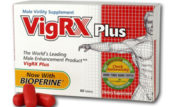 Curious how a wooden block might prevent fatigue, jaundice, memory loss and even delusions? I’ll give you a hint: it’s got something to do with your choice of acid reflux treatment. A wooden block under your front bedposts helps drain stomach acid from the esophagus. And reflux pills like proton pump inhibitors? They appear to increase risk of vitamin B-12 deficiency. Not a good thing.
Curious how a wooden block might prevent fatigue, jaundice, memory loss and even delusions? I’ll give you a hint: it’s got something to do with your choice of acid reflux treatment. A wooden block under your front bedposts helps drain stomach acid from the esophagus. And reflux pills like proton pump inhibitors? They appear to increase risk of vitamin B-12 deficiency. Not a good thing.
That’s the word emerging through health circles, after a new study, published in the Journal of the American Medical Association found that patients who took PPIs for two years or longer were 62% more likely to be low in B-12, which the body requires for blood health and nerve cells.
This is cause for concern. Plenty of folks put back PPIs and related heartburn medications, at roughly 125 million prescriptions written in 2012. Acid reflux symptoms warrant attention, too, because they may indicate more serious health issues, like esophagitis, tooth decay, breathing problems, and even cancer of the esophagus.
So what does this mean? Use PPIs and H2 blockers sporadically, to begin with. Speak with your physician about a blood test for B-12 deficiency if you’re among the many adults who pop reflux pills as a long-term remedy for reflux symptoms, including heartburn. Most of all, hit reflux where it really hurts, with dietary and lifestyle modifications that we’ll review in this article.
Study: Heavy PPI Users Should Be Tested for B-12 Deficiency
The study adds further weight to a growing belief that PPIs and H2 blockers should be used judiciously. They both inhibit stomach acid production, which evidence links to increased risk of hip fractures in women. So it’s not a huge leap from there to see how both of these wildly popular reflux medications may interfere with the body’s ability to use vitamin B-12.
In the study, gastroenterologist and research scientist Dr. Douglas Corley and his team reviewed health records from nearly 26,000 people who had been diagnosed with B-12 deficiency and compared that information to almost 185,000 with sufficient levels of the nutrient.
Among their findings: 12% of the people with a B-12 deficiency had taken PPIs for more than two years compared to 7.2% of those without a deficiency who’d taken PPIs for the same length of time. The team found a similar increased risk among patients who took H2 blockers.
A new study, published in the Journal of the American Medical Association found that patients who took PPIs for two years or longer were 62% more likely to be low in B-12, which the body requires for blood health and nerve cells.
And dosage mattered, with people who took higher doses of either medicine being more likely to develop a deficiency. Patients who took 1.5 pills daily had almost double the risk of B-12 deficiency than those who took 0.75 pills each day.
Note too that people younger than 30 were at higher risk than older patients. Deficiency occurred more often in women than men.
Is it Dangerous to Be Deficient in Vitamin B-12?
Your body cannot function properly without sufficient vitamin B-12; you need it to produce red blood cells, nerves, DNA and perform other essential functions. By itself, B-12 deficiency may not be dangerous, but it can lead to other, more urgent health issues, if not corrected.
Symptoms of mild vitamin B-12 deficiency include:
- fatigue, weakness, light-headedness
- rapid heartbeat
- pale skin
- easy bruising and bleeding
- bleeding gums
- stomach discomfort and weight loss
- constipation or diarrhea
When not addressed, B-12 deficiency can become more severe, with damage to nerve cells that can lead to:
- tingling and numbness in fingers and toes
- trouble walking
- jaundice/yellow skin
- mood changes and depression
- memory loss, dementia and delusions
B-12 deficiency in babies can cause permanent – and sometimes severe – damage to the nervous system. Risk of deficiency in babies is higher in new mothers with a vegetarian diet. Newborns in this category should be tested by a physician.
Compounding the issue is that the body does not produce vitamin B-12. Nor does it occur in plants, which is why vegans and vegetarians are typically at higher risk of deficiency. You can only get vitamin B-12 through animal sources, including meat, poultry, fish, eggs, milk and other dairy sources, or through a supplement.
Consider this list of foods that are rich in vitamin B-12.
Don’t feel like you’re being scolded if you’re deficient in B-12. It’s not uncommon; according to the U.S. Office of Dietary Supplements, 1.5% to 15% of adults in the United States have the same problem. They might not be pill-poppers either – some people don’t absorb B-12 properly even with sufficient diet or supplements.
What is the Link Between Acid Reflux and Vitamin B-12 Deficiency?
While follow-up studies are needed, the link appears to be that heavy users of antacids, which include proton pump inhibitors and H2 blockers, are at higher risk of vitamin B-12 deficiency because they inhibit stomach acid. In turn, that might reduce the body’s ability to absorb nutrients: B-12 among them.
 Acid reflux is a condition in which acid escapes from the stomach through the lower esophageal sphincter, or LES and enters the esophagus. With symptoms including heartburn, regurgitation, coughing, nausea and abdominal pain, it’s highly unpleasant, and prompts many patients to find relief with heartburn medication and reflux pills. The caveat here is that they should only be used temporarily.
Acid reflux is a condition in which acid escapes from the stomach through the lower esophageal sphincter, or LES and enters the esophagus. With symptoms including heartburn, regurgitation, coughing, nausea and abdominal pain, it’s highly unpleasant, and prompts many patients to find relief with heartburn medication and reflux pills. The caveat here is that they should only be used temporarily.
Risk factors for acid reflux include:
- Obesity
- Pregnancy
- Smoking
- Eating large meals
- Lying down after a meal
- Snacking before bed
- Spicy foods
- Carbonated drinks and alcohol
Most people experience occasional reflux symptoms, but if they occur at least twice a week, you have gastroesophageal reflux disease (GERD), otherwise known as acid reflux disease.
PPIs, H2 blockers and other heartburn and reflux medications offer fast relief. That’s their appeal – and also their downfall, because they appear to alter GI functioning when used indefinitely. Stomach acid is essential to break down food and process nutrients from food sources. Take it away and the GI tract can’t work properly.
Some people rely on these medications, both OTC or their stronger prescription variety, for relief from acid reflux symptoms rather than addressing the causes of this troublesome ailment. As the study indicates, these people appear to be at highest risk of B-12 deficiency from acid reflux pills.
So How Should I Stop Acid Reflux?
With changes to diet and lifestyle and ongoing communication with your doctor. There’s no magic bullet. Sorry to disappoint, but it’s important to listen to your body and help it work as it should. That means watch what you eat and drink, when you consume them, and other steps for general well-being. These include:
Avoid Trigger Foods – While everyone is different, some foods are notorious for causing reflux symptoms, especially tomatoes, citrus and fried foods. Keep a journal of which foods trigger your reflux symptoms. Peruse this list of foods that cause heartburn and acid reflux for a list of chronic offenders.
Don’t Eat Two Hours Before Bed – Give food time to digest before turning in for the night. That means two, or even three hours, after which food should empty from your stomach and acid levels return to normal.
Elevate Your Bed With Wooden Blocks – Put six-inch wooden blocks under the bed posts at the front of your bed so your head is higher than your stomach. Use blocks rather than pillows, which will just angle your head and make heartburn worse.
Note too that night heartburn is of particular concern because the stomach acid sits in your esophagus longer than it would during the day.
Don’t Overeat – Five to six smaller meals are better than three large ones. Don’t wait until you are hungry to eat, or your risk overeating.
Eat Slowly – Take time to savor each meal. Chew your food – studies show you’ll eat less by doing this, and put your fork down as you do.
Wear Loose-Fitting Clothes – Avoid belts and clothes that compress your stomach because they are more likely to push acid up into your esophagus. Casual, loose-fitting clothes are more reflux-friendly.
 Healthy Weight Management – We can’t mince words: obesity and being overweight increases risk of acid reflux symptoms, including heartburn. Watch portion sizes and aim to exercise at least three times a week, preferably medium intensity and for at least 45 minutes. Just take care not to eat for two hours before exercising and drink plenty of water if your symptoms act up.
Healthy Weight Management – We can’t mince words: obesity and being overweight increases risk of acid reflux symptoms, including heartburn. Watch portion sizes and aim to exercise at least three times a week, preferably medium intensity and for at least 45 minutes. Just take care not to eat for two hours before exercising and drink plenty of water if your symptoms act up.
Stop Smoking – Looking for an extra push to put cigarettes down permanently? Consider that nicotine can loosen the LES valve separating the stomach and esophagus, which allows stomach acid to go where it ain’t got no business.
Avoid Alcohol – Opt for exercise, walking, meditation, music or some other healthy way to unwind at the end of a stresssful day. Alcohol makes reflux worse.
In conclusion, PPIs, H2 blockers and related antacids offer temporary relief from reflux. But that’s precisely the point – it’s temporary at best. Don’t use glue to build a house.
So get serious about heartburn and acid reflux symptoms. Look at your lifestyle and what’s on your plate. Get tested for B-12 deficiency too, especially if you’ve put PPIs back for at least two years – or simply if you’e at high risk of deficiency for that matter. Your body is much like that thing called life. You get one at the beginning. What you do with it is up to you.




